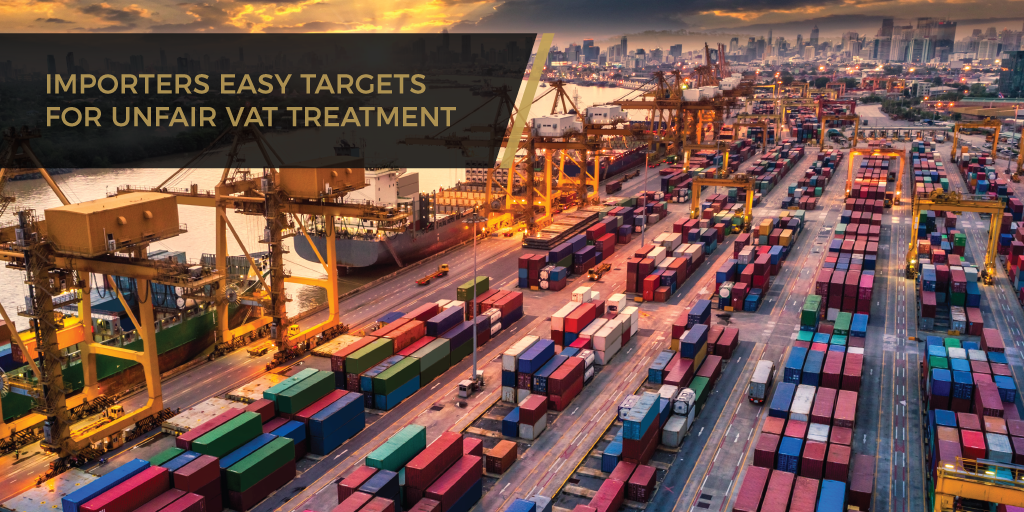Even the experienced importers are falling foul to failed VAT refund claims and disallowed input VAT deductions.
2018 has been a trying time for South African businesses; from the weakening of the rand, the hike of the VAT rate to 15%, and slow growth rate of the economy. The modern struggle for many businesses, however, stem from their VAT obligation. What was previously a routine filing, has more recently become a minefield of pain and frustration for vat vendors, with the imposition of manual or system generated audit-standard VAT verifications resulting in vat vendors failing in their claims for VAT.
Importers targeted?
South African vendors are persistently encountering difficulties with their VAT return filing and claiming back of VAT. To understand the types of difficulties faced, many of which are hard to believe, a reading of the Tax Ombud’s 2017 report on the systemic delay of refunds is 100% suggested. While making every attempt to retain a neutral position, the report provides a detailed breakdown of what exactly is going wrong at SARS.
In this past tax season, we have noticed that importers with legitimate input VAT claims are the latest to fall victim to this trend. The difficulties demonstrated are not only applicable to newly registered importers still wet behind the ears, but also well-practiced importers with previously near perfect track records.
What has changed?
An old hand to the importing game is not unfamiliar with the VAT claim and refund process. More likely, they can more or less name each and every customs document and VAT related piece of paper necessary to succeed in such their claim. Afterall, the legal requirements have not changed as much as the manner in which SARS interprets and applies them has.
Taking nothing away from the tried and tested, but there is little room for success where, the VAT vendor’s documents are scrutinised by a seasoned and motivated SARS Customs Auditor.
These individuals look beyond basic compliance and get stuck into the nitty gritty of each customs and VAT document. From the SAD500’s to EDI Release Notifications, the questions start piling on. Row 37 of document 52 not quite accurate? VAT claim denied. Only 42 of 45 customs release documents provided? VAT claim denied. A SARS Customs Auditor relies on form over substance in their assessment of a VAT claim where the burden of proof gets greyed to a point of beyond reasonable doubt.
The new answer?
This bureaucratic nightmare has resulted in more VAT vendor turning away from numbers people (accountants and tax consultants) and toward the document jockeys themselves, attorneys. A claim for VAT is now an argument; extensive, technical and challenging, this process is suited to seasoned attorneys and advocates, given their training.
From a legal perspective, SARS may not disallow a VAT claim on trivial grounds. If a vat vendor can prove on a balance of probabilities that they are entitled to their claim, and the required documents have been preserved, they must succeed. At least, that’s what the law says. But it takes a certain skill set to understand when a disallowance is based on the trivial.
To summarise, SARS’ refusal of a VAT claim should therefore never be accepted at face value. Engage an attorney with tax, VAT and customs experience, get advice on the strength of a potential VAT claim, collect all the necessary documents and fight back.
Authors: Tax Consulting Legal Team



